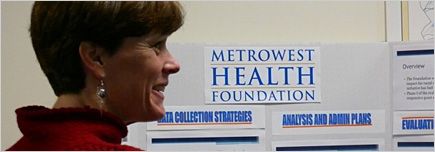Projects

The Bruner Foundation has funded, supported and evaluated a number of projects related to building evaluative capacity. Below is a sample of that work:
Sustaining Evaluative Capacity (2010-2012)
Two separate projects specifically designed to deepen evaluation skills in service-provider organizations where readiness and existing evaluative capacity were known from prior evaluation capacity grants.
- The Evaluation Support Project
(conducted with Lifespan which provides services to older adults and caregivers in Rochester, NY). The project included three two-hour training sessions for the entire staff (18) and a guided evaluation project for a subset of 3 staff on one new project. - The Anchoring Evaluative Capacity Project
(conducted with Hartford Gay & Lesbian Health Collective, Latino Community Services and the YWCA all in Hartford, CT). The project was jointly supported with the Hartford Foundation for Public Giving and Evaluation Services. It included two two-hour training sessions on basic evaluation and one two-hour guided data analysis for a specific agency program. Each agency selected multiple staff members (7 - 15) to participate.
Evaluative Thinking in Philanthropy/E-TIP (2010)
A project involving two place-based Grantmakers, E-TIP was designed to enhance evaluative capacity at the organizational level. Four two-hour sessions included topics such as "What is evaluation and how can it be used by Grantmakers?" and "What is the relationship between program evaluation and evaluative thinking?"
E-TIP provided an opportunity for Grantmakers to contribute to the refinement of Bruner Foundation's evaluation materials: FIVE GUIDEBOOKS FOR GRANTMAKERS
Evaluative Thinking in Organizations/ETHOS (2004-2005)
A year-long interactive study to determine and assess the use of evaluative thinking in 12 organizations.
Rochester Effectiveness Partnership/REP (1996-2003)
A self-governing partnership of funders, non-profit service provider organizations and evaluation professionals, this multi-year initiative involved comprehensive training, guided evaluations and alumni study groups to increase knowledge and use of participatory program evaluation.























